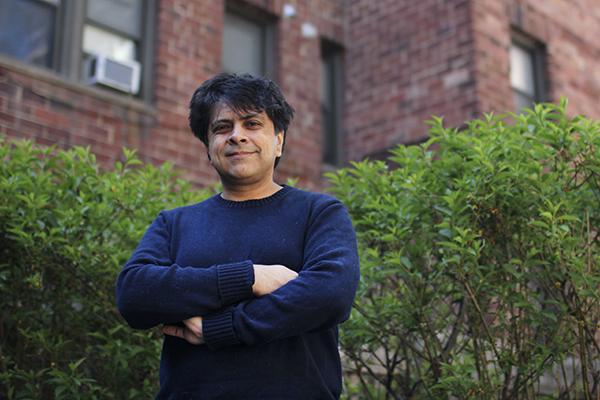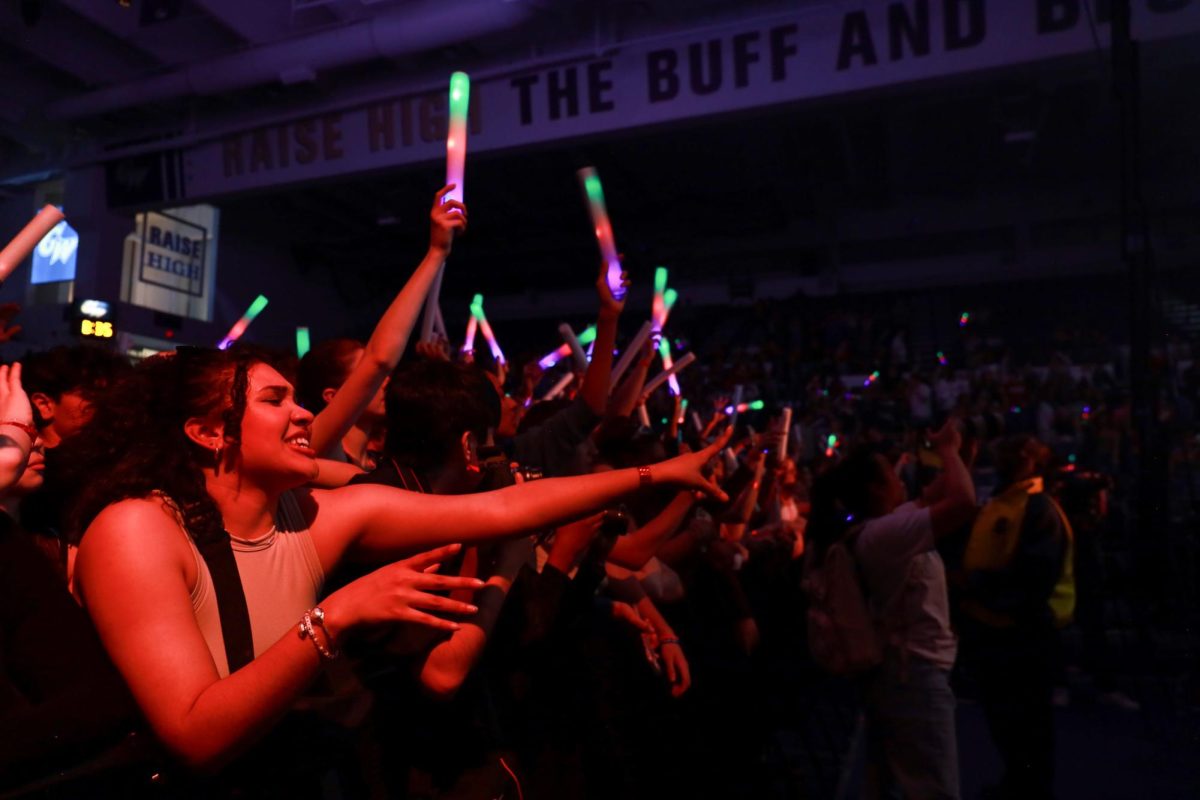Sixteen-year-old Daiana James isn’t sure where she wants to go to college, but she knows she wants to leave D.C.
For now, the junior at Benjamin Banneker Academic High School in Shaw is one of 53 semifinalists competing at GW next week in Poetry Out Loud, a national poetry recitation contest for high school students.
When the self-proclaimed bookworm steps up to the microphone on Wednesday, she’ll be competing for $20,000. If she comes out on top, she said she’ll put her winnings toward attending a “nice journalism or writing program” in a new city.
Poetry Out Loud, in conjunction with the National Endowment for the Arts and the Poetry Foundation, begins in high school English classrooms across the country. Poets, writers and educators, who will judge the competition, say it connects high schoolers to poetry at a time when science, technology, engineering and math programs and standardized tests are overshadowing the humanities.
Since the program started a decade ago, about 2.7 million students in 9,500 schools have memorized line after line for the competition.
James said it was mandatory for all students to participate in the first round of Poetry Out Loud at Banneker, and while some classmates may have dreaded performing in front of an audience, she “welcomed it with an open heart and mind.”
“Performing is my sport,” she said. “Being on stage is my being on the field.”
Winners from contests held at the school level move onto county, then state recitations. The semifinalists will recite poems on Tuesday in Lisner Auditorium, and nine finalists will be asked back for a final recitation on Wednesday evening.
Jennifer Chang, an English professor at GW, was a guest judge in the 2012 semifinal round. She said that performing poetry isn’t highlighted enough in middle school and high school curricula because poetry can seem out-of-reach for young readers.
“You don’t have to know what a poem means immediately, but you can still love a poem the way you love certain songs. There’s that abstract quality,” Chang said. “Abstract is a dirty word, but it’s actually quite wonderful.”
When Chang judged the competition, she said the best participants showed a deep understanding of the poems – a sign that the young readers were able to comprehend more sophisticated texts.

“It was just beautiful to see these young people from all over the country bringing nuances and interpretation to how they read the poems,” Chang said.
Taylor Mali, a well-known slam poet and author, will host the competition this year. He said in high school, an English teacher had forced his friend to memorize “The Love Song” by T.S. Eliot.
“He hated doing it but the poem stuck by him. Then, in college, he was studying with a girl he really liked and she said her favorite poem was that one. He recited the whole thing and she threw herself on top of him,” he said. “Studying poetry in high school will allow you to make out with the person of your dreams in college.”
Mali said anyone who says poetry is irrelevant is “the same type of person who would cut a theater or music program.”
Brando Skyhorse, a Jenny McKean Moore Writer-in-Washington fellow in GW’s English department who teaches two courses and lives in the Lenthall House on campus, said when schools look to rein in spending, the humanities – and poetry in particular – are the first to go.
“It’s a real shame – we use language every day. Poetry is the most important part of our lives. At weddings, funerals, graduations – poetry is always there. It’s taken for granted,” Skyhorse said.
When Skyhorse, one of the five Poetry Out Loud judges this year, moved to the Lenthall House, one of the first things he and the English department did was open the house up to poetry readings for students.
“I hear poetry in my living room every six weeks,” he said.
Though poetry may sound archaic in modern classrooms, Carol Jago, also a judge, said that organizations like the National Endowment for the Arts and the Poetry Foundation act as “forces for good” as teachers began to de-emphasize recitation in classrooms.
“If I could use my 32 years [of teaching] differently, I’d have every student memorize a poem once a week,” she said. “It’s not about using quill pens and making poems too precious, living in museums and framed in gold. We want to be something they talk about like the last episode of ‘Mad Men.’”






